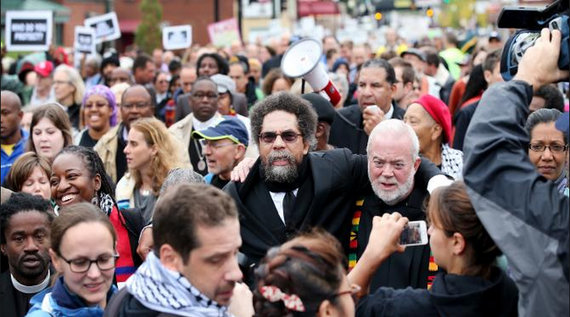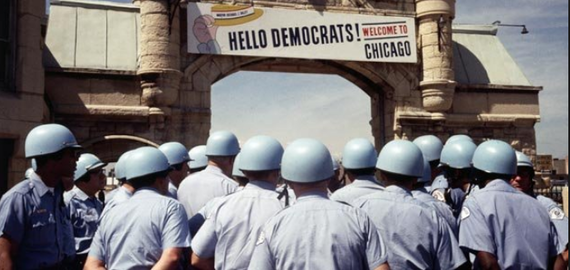 There's an old joke about memory loss.
There's an old joke about memory loss.
A couple in their nineties are both having problems remembering things. During a checkup, the doctor tells them that they're physically okay, but they might want to start writing things down to help them remember.
Later that night, while watching TV, the old man gets up from his chair.
'Want anything while I'm in the kitchen?' he asks.
'Will you get me a bowl of ice cream?'
'Sure.'
'Don't you think you should write it down so you can remember it?' she asks.
'No, I can remember it.'
'Well, I'd like some strawberries on top, too. Maybe you should write it down, so as not to forget it?'
He says, 'I can remember that. You want a bowl of ice-cream with strawberries.'
'I'd also like whipped cream. I'm certain you'll forget that, write it down?' she asks.
Irritated, he says, 'I don't need to write it down; I can remember it! Ice cream with strawberries and whipped cream - I got it, for goodness sake!'
Then he toddles into the kitchen. After about 20 minutes, the old man returns from the kitchen and hands his wife a plate of bacon and eggs. She stares at the plate for a moment.
'Where's my toast?'
It's natural to forget things every now and again. According to the "psychology expert" Kendra Cherry, there are four basic reasons we forget:
-1 Retrieval Failure
-2 Interference
-3 Failure to Store
-4 Motivated Forgetting
But forgetting doesn't just take place on an individual basis, it can also happen, if you will, to the "collective mind." Like a person, societies too remember and forget. The question is: What does society remember (or pass on) and what does it forget, and why?
The late philosopher, Paul Ricoeur, wrote a book entitled, Memory, History, Forgetting that explored why some events are remembered while others aren't. The "Holocaust" rightly triggers the ghastly horrors of millions of Jews, homosexuals, mentally challenged and Gypsies exterminated by employing the capitalist technologies that Henry Ford developed called the "assembly line." But what doesn't get triggered is the memory of the Armenian genocide. Why? Think too about the neofascist McCarthy era or France's role in Northern Africa or even the slave economy on which the United States of America was founded.
The point is that just like we don't want to remember embarrassing events of our personal past (and heaven forbid if our children found out), so too society is necessarily selective about what we pass on from generation to generation and what we forget.
The process by which we pass on memories (or not) from one generation to the next is called education. From this it is clear that whoever controls the educational apparatus of society also controls the shaping of the collective memory that helps define what that society is and how it unfolds through future generations via values, truths, and so on.
Memories don't just spring up from nowhere; they are shaped and controlled by power. Those in power desire to keep their power. This is why the loss of the public sphere in America since the Reagan era in the 80s has, at the same time, introduced an anti-public logic that gave birth to privatizing schools, prisons, and institutions in the public sectors.
This trend, moreover, is anti-democratic because only a handful of individuals control what is remembered and what is left to the dustbins. And this is dangerous because if the wealthy class controls what is remembered/lost in our history by privatizing education we will have lost the spirit of our collective struggle of governing "of the people, by the people, for the people." Instead we'll be brainwashed into thinking that America was build not by working class people but only the wealthy few. It's as if we are enslaved to the rich and hopeless without them. But why should we have to think that?
Further, this anti-democratic trend has permitted the rich-class to ascend to historically unparalleled levels of inequality. Oh, wait our present inequality of wealth distribution in America is matched historically to levels only comparable to the late 1920s, the eve of the Great Depression.
Even our public universities have sold-out to this neo-liberal logic. According to theChronicle of Higher Education, public funding cuts to state universities and colleges has continued to decline since 1987 (i.e., the Reagan era). And where did the public dollars come from before the politicians decided to gut education funding? It came from tax dollars largely backed by the wealthy class. This is the same class that has outsourced our jobs and moved offshore to avoid paying taxes to the very society that gave them the opportunities to succeed in the first place.
It might be easy to buy into the Republican (corporate) rhetoric of "no taxes" but if we look at the facts more carefully, we'll see that "no taxes" (for education, public infrastructure etc.) means that the middle and working classes ultimately take on the "hidden" and unfair burden of educating their children just to compete and survive. Why? Because less public funding means that colleges must spike tuition costs, which are up close to 1000% since Reagan took office. This unfairly shifts the cost of education to the individual and once again the loss of the public good is felt at all levels, meanwhile the rich keep getting richer and they pay little taxes to help share the burden and to embody what it means to be a good neighbor.
It is time we did our part in keeping the 1% accountable to the very society that gave them the opportunity to succeed in the first place. If we fail to do this soon we won't even remember that we were once a democracy at all.
Original Article
Source: huffingtonpost.com/
Author: Creston Davis


No comments:
Post a Comment